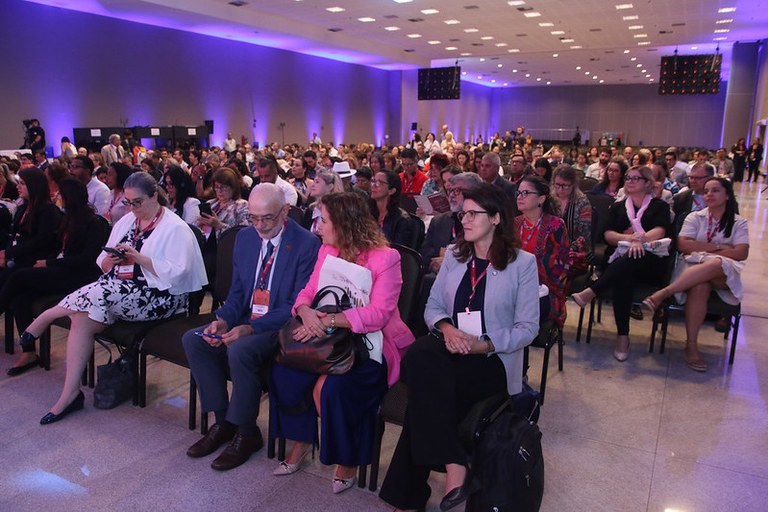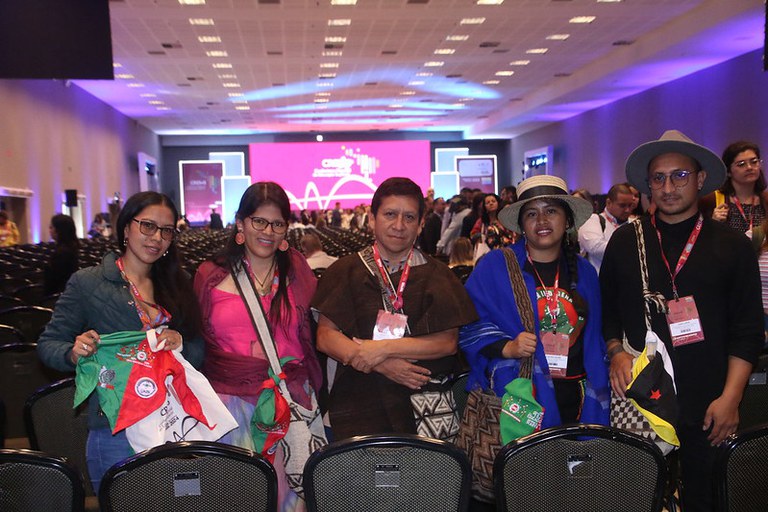Notícias
CRES+5
Education and regional integration in the 21st century
Building higher education for the 21st century with greater equality and respect for the tremendous ethnocultural diversity and various social backgrounds of the countries of Latin America and the Caribbean involves fostering "emancipatory regional integration." This concept was introduced by Professor Nilma Lino Gomes, former Minister of Women, Racial Equality, and Human Rights, during the opening speech for the second day of CRES+5 – the follow-up meeting to the III Regional Conference on Higher Education, taking place in Brasilia until Friday, March 15th.
According to Nilma, the diversity and segmentation of classes and civil society groups, along with political relations and other current affairs, create tense and extremely complex social relations in the region. This situation favors the perpetuation of entrenched educational standards and a colonial culture that is no longer compatible with the needs of the 21st century. For her, this situation perpetuates inequalities in higher education, both among teachers and students, and reinforces concepts of higher education that hinder the inclusion of other forms of knowledge, such as the traditional knowledge held by leaders from indigenous and black communities. These are concepts that should be accepted and integrated into society's knowledge, much like traditional scientific concepts.
According to Nilma Gomes, several countries in the region have been taking steps to revitalize higher education through the implementation of affirmative policies and programs, such as the quota system for black and indigenous people in Brazil. However, progress has been slow. "The challenge of advancing regional integration in Latin America and the Caribbean, as well as achieving a more equitable and inclusive education, impacts all sectors, including politics, economics, culture, and education."
Despite the current reality, the former minister believes it is not unrealistic to consider building a distinctive higher education system that takes into account ethno-cultural, racial, and civil society differences. However, she notes that the integration discourse is being used by conservative movements to hinder and deconstruct the progress that has already been made. "In Brazil, this challenge is part of the democratic recovery process and the ongoing debate on higher education," she said. Nilma stressed that to develop an education model suitable for our times, democratic governance is essential, particularly given the ideological polarization in civil society.
"Society is polarized, as we have been hearing from various analysts. I see this polarization as having reached a certain peak, as it now has a political representation in Brazil that it did not have before, in the same way that we see today. Ultimately, if we consider that we are a society with a colonial, slaveholding past, with an attempt at indigenous genocide, what we call polarization today are views that have always existed. However, these views are now expressed alongside market fundamentalism, religious fundamentalism, a large hegemonic media, and political representation. As I said, these are voiced by segments of these sectors that are therefore in tension with segments that are fighting for democracy, for social transformation, for true inclusion, with diversity, with equity, and with social justice," she concluded.
CRES+5 – is promoted by Brazil’s Ministry of Education (MEC), through the Higher Education Secretariat (Sesu) and the Coordination for the Improvement of Higher Education Personnel (Capes). It is organized in partnership with the UNESCO International Institute for Higher Education in Latin America and the Caribbean (UNESCO-IESALC) and the Latin American and Caribbean Higher Education Space (Enlaces).
The target audience of CRES+5 includes chancellors, directors, academics, workers, students, higher education networks, associations and experts, research centers, trade unions, representatives of governmental and non-governmental organizations and all those interested in higher education on this continent.
Among the preparatory activities for the meeting, different instances of open and participatory debate were organized as part of the event's methodology-building process. Throughout 2023, face-to-face meetings were held in Córdoba (Argentina), Puebla (Mexico), Asunción (Paraguay) and Havana (Cuba). In addition, preparatory virtual public consultations were held in order to discuss and gather information on the 12 thematic axes of CRES+5, as well as to contribute to the implementation of the Conference. See full program.
MEC Communications Department


